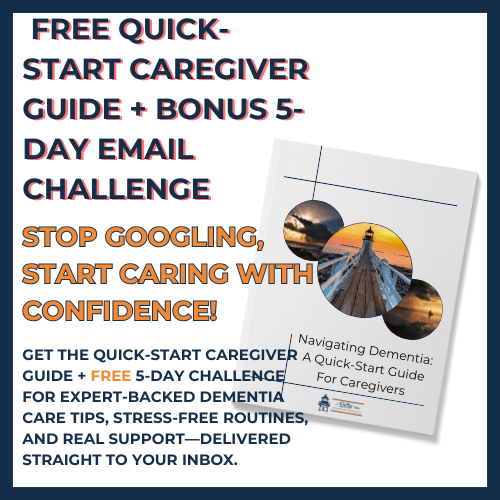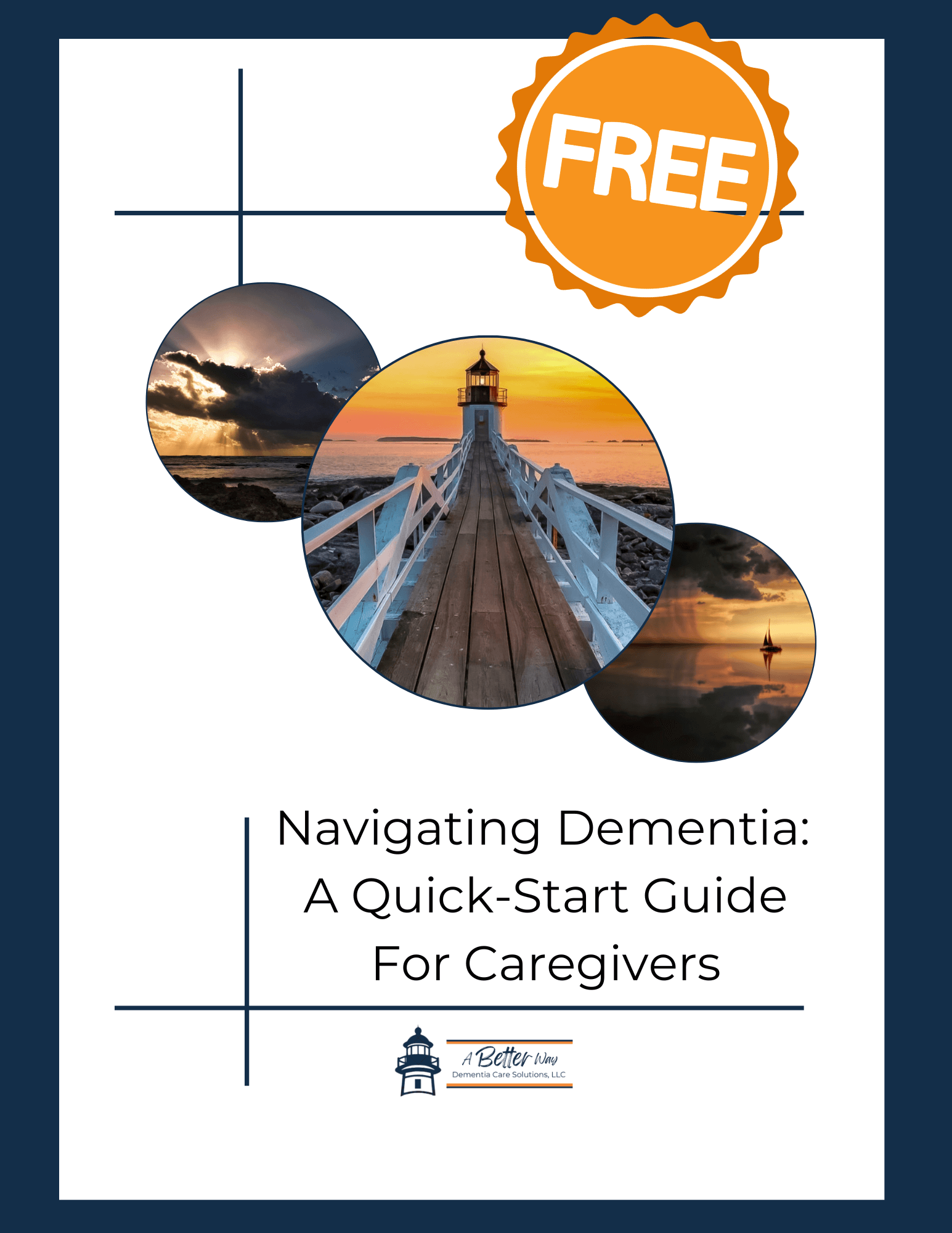
Has the person you care for ever said something that just isn’t true? Maybe they talk about needing to get ready for work, even though they retired years ago. Or they say their parent is coming to visit, even though their parent passed away a long time ago.
When this happens, it can be hard to know what to do. Do you correct them? Change the subject? Go along with it? These moments can feel confusing or even frustrating. But here’s the thing: they’re not trying to lie. Their brain is just working differently now.
Let’s talk about how you can respond with kindness and keep things calm and comforting-for both of you.
Why This Happens
Dementia changes how the brain works. It affects memory, thinking, and how people understand the world. So when the person you care for says something that isn’t true, it might be because:
• They’re remembering something from long ago and think it’s happening now.
• They’re feeling anxious or confused and trying to make sense of their surroundings.
• They misunderstood something they saw or heard.
• Their brain is filling in gaps in memory with stories that feel real to them.
Whatever the reason, they’re not trying to be difficult. They’re doing their best with the brain they have right now.
1. Don’t Argue or Try to Prove Them Wrong
As dementia gets worse, explaining or using logic often doesn’t help. It might even make things harder. Correcting them can lead to arguments, hurt feelings, or more confusion.
Try this:
• If they say, “I need to get ready for work,” instead of, “You don’t work anymore,” you might say, “Oh, what kind of work did you do? Did you enjoy it?”
This keeps the conversation going without making them feel wrong or embarrassed.
2. Listen to How They Feel
Even if their story isn’t accurate, their feelings are real. Maybe they’re scared, lonely, or missing someone. When you respond to their feelings instead of the facts, they feel heard and loved.
Try this:
• If they say, “My mom is coming over,” you could respond with, “You must really miss her. What was she like?”
This shifts the moment from correction to connection.
3. Gently Change the Subject
Sometimes, it helps to steer the conversation in a new direction. This can be especially useful if they’re upset or stuck on an idea that’s causing them distress.
Try this:
• If they say they have an appointment that doesn’t exist, you might say, “Okay, before we head out, let’s enjoy a cup of tea together.”
Offer something they enjoy or suggest an activity that helps them feel calm.
4. Offer Comfort
Living with dementia can be confusing and sometimes scary. Your calm voice, kind words, and presence can be a huge source of comfort.
Try this:
• If they think someone stole something, instead of, “No one took it,” say, “I can see you’re worried. Let’s look for it together.”
This helps them feel safe and supported.
5. Step Into Their World
This idea is called “therapeutic fibbing.” It means joining their version of reality when it helps them feel calm and safe. It’s not about lying-it’s about caring.
Try this:
• If they say, “I need to go get the kids from school,” instead of correcting them, say, “They’re safe, and everything’s taken care of.”
Sometimes, giving a simple answer that fits their reality is the kindest thing you can do.
6. Use What They Can See and Feel
Their confusion may come from what they see around them. You can gently help reorient them by using light, sound, or touch.
Try this:
• If they think it’s nighttime in the middle of the day, open the curtains and say, “Look at the sunshine! It’s such a nice afternoon.”
Pointing out what’s real in the moment can sometimes bring clarity.
7. Stay Calm
How you respond matters just as much as what you say. When you stay calm, you help them feel calm too.
Care tip:
• Take a deep breath. Speak slowly and gently. Even a soft smile can make a big difference.
You might feel frustrated or tired, and that’s okay. Give yourself a moment when you need one.
8. Keep It Simple
Too many words can be overwhelming. Short, clear sentences are easier for the brain to process.
Try this:
• Instead of, “We already talked about this and it’s not true,” try, “That’s interesting. Let’s chat while we have some tea.”
Simple, friendly responses go a long way.
9. Give Comfort in Small Ways
A warm touch, a kind look, or sitting quietly together can help more than any explanation.
Try this:
• Gently hold their hand and say, “I’m here. You’re safe.”
Sometimes words aren’t needed at all. Just being there can say everything.
10. Let It Be
You don’t have to fix every false belief. If it’s not causing harm, it’s okay to let it go.
Try this:
• If they believe they’re in their childhood home, instead of correcting them, say, “That sounds like a special place. What do you remember about it?”
This opens the door for storytelling and connection.
When You’re Not Sure What to Say
Here are a few go-to phrases that often help:
• “Tell me more about that.”
• “That sounds important to you.”
• “I’m here with you.”
• “Let’s do this together.”
You don’t have to say the perfect thing. Just something kind.
A Gentle Reminder
When the person you care for says something that isn’t true, your goal isn’t to correct them-it’s to comfort them. You’re doing your best in a tough situation, and that matters.
You don’t have to do everything right. You just have to show up with love.
Extra Tips for Everyday Moments
• Use photos and music. These can help bring them back to familiar memories and soothe confusion.
• Keep a routine. Structure helps reduce anxiety and makes them feel more secure.
• Write down common comforting phrases. When you’re tired, it helps to have go-to responses.
• Take breaks. Your wellbeing matters, too. Ask for help when you need it.
You’re Not Alone
These moments can be hard. But you’re not alone. Many caregivers face the same questions, the same tough moments. And every time you respond with care-even if you’re unsure-you’re making a difference.
Give yourself credit. This is heart work. And you’re showing up with love.
Journal Prompt
Think back to a recent moment when the person you care for said something that wasn’t true. How did you respond? What might you try differently next time?
Caregiver Affirmation
"I choose kindness over correction. I meet the person I care for with love, patience, and presence."
Next Steps
If you need personalized guidance on creating a care plan, consider our 1:1 caregiver coaching services. Let’s navigate this journey together. Schedule a consultation today!
Join Our Private Caregiver Community
If you're looking for a safe space to share your caregiving experiences, ask questions, or simply connect with others who understand the challenges you face, join our private Facebook support group for caregivers. It's a supportive, empathetic community where you can find encouragement and answers when you need them most. Click here to join.
Subscribe to Our Newsletter & Download Your Free E-Book
For more valuable tips, resources, and updates on dementia care, click here to subscribe to our newsletter today!
Download Our FREE E-Book. CLICK HERE

Notes:
- Alzheimer's Association. (n.d.). Dementia communication: Responding to false statements. Retrieved from https://www.alz.org/help-support/caregiving/daily-care/communications
- Klein, B. (2023). The validation method in dementia care: Communicating with empathy. Verywell Health. Retrieved from https://www.verywellhealth.com/validation-method-for-dementia-98590
- National Institute on Aging. (2021). Tips for communicating with a person with dementia. Retrieved from https://www.nia.nih.gov/health/communicating-person-dementia
- Teepa Snow. (n.d.). Responding to unmet needs in dementia care. Positive Approach to Care. Retrieved from https://teepasnow.com
- Mayo Clinic. (2023). Dementia care: Understanding changes in communication. Retrieved from https://www.mayoclinic.org/healthy-lifestyle/caregivers/in-depth/dementia-care/art-20047452
- Harvard Health Publishing. (2021). Therapeutic fibbing: When “lying” is kinder than telling the truth. Retrieved from https://www.health.harvard.edu/blog/when-fibbing-is-the-kindest-choice-in-dementia-care-2021012521885
Want to keep figuring this out together?
Subscribe to Finding Our Way in Dementia Care and get honest stories, helpful tips, and gentle support delivered to your inbox every week. Just real talk, grounded care, and space to breathe.
Subscribe to Finding Our Way in Dementia Care and get honest stories, helpful tips, and gentle support delivered to your inbox every week. Just real talk, grounded care, and space to breathe.
Kind truth. Clear steps. Warm guide.
















0 Comments